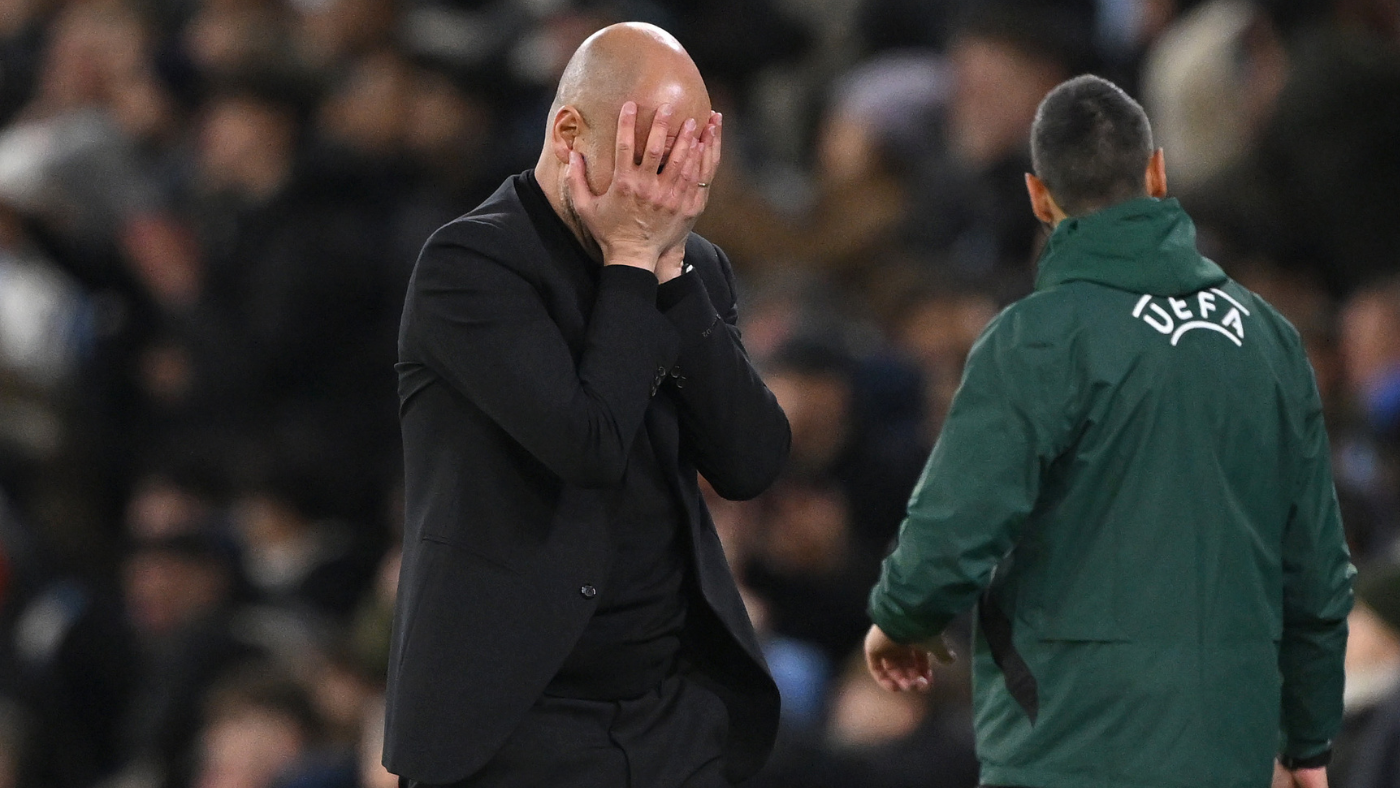UEFA Champions League coefficient: What to know as Italy secures a fifth UCL spot and England collapses
Written by Lucky Wilson | KJMM.COM on April 19, 2024

It was a massive set of quarterfinals across the UEFA Champions League, Europa League and Europa Conference Leagues and we have the semifinals to look forward to in just over a week already. The stakes are higher than ever this year given the incoming changes to the Champions League from next season and the situation has created two separate coefficient battles which will determine how many teams from the different leagues will qualify for next campaign’s competitions. The battle for a fifth UCL spot via the league has mainly concerned Germany, Italy, England and Spain but France and the Netherlands have also been battling to be part of that top five with the French currently ahead before the move to the so-called “Swiss” format.
We break down why the UEFA coefficient means so much in European soccer right now and why you will be hearing much more about it as continental soccer rumbles on.
By pressing sign up, I confirm that I have read and agree to the Terms of Use and acknowledge Paramount’s Privacy Policy.
Please check the opt-in box to acknowledge that you would like to subscribe.
Thanks for signing up!
Keep an eye on your inbox.
Sorry!
There was an error processing your subscription.
Extra UCL place ranking
- 1: Italy — 19.428 points (3/7 teams) *Confirmed extra UCL berth.
—–
- 2: Germany — 17.928 points (3/7 teams)
- 3: England — 17.375 points (1/8 teams)
- 4: France — 16.083 points (2/6 teams)
- 5: Spain — 15.312 points (1/8 teams)
- 6: Belgium — 14.200 points (1/5 teams)
What is this?
Italy’s Serie A and one more of Europe’s domestic leagues will receive additional Champions League places as part of the incoming expansion to a 36-club competition. Four more clubs will qualify than is currently the case and two of those four spots will be awarded to the domestic leagues which have fared best across Europe this season. Each win is worth two coefficient points with one point awarded for a draw and zero for a loss with each country judged on the best average coefficient of all of its competing sides. Bonus points do exist which provides an extra boost — especially in the Champions League — on top of the points gained by all clubs which get added together and then divided by the number of participating clubs which in turn creates the coefficient average.
Why do we have this?
UEFA’s coefficient ranking is designed to measure the respective strength of each domestic league through its collective continental performances. Wins count the same across all competitions because it would be otherwise impossible for leagues without Champions League group stage representatives to ever advance up the ranking system. Bonus points might count for less below the UCL, but some leagues — such as the Netherlands in recent years — have benefitted from dropping out of the Champions League and into the Europa League and building up points there or in the Europa Conference League. Each two-legged tie has five potential points at stake and the UEL and UECL both feature playoff games when teams drop down from the higher ranked competitions.
Overall European coefficient
- 1: England — 104.303 points (17.375 points from 1/8 teams in 2023-24)
- 2: Spain — 88.739 points (15.312 points from 1/8 teams in 2023-24)
- 3: Italy — 88.712 points (19.428 points from 3/7 teams in 2023-24)
- 4: Germany — 85.195 points (17.928 points from 3/7 teams in 2023-24)
- 5: France — 66.664 points (16.083 points from 2/6 teams in 2023-24)
—–
- 6: Netherlands — 61.300 points (10.000 points from 0/5 teams in 2023-24)
What do I keep an eye on?
The biggest potential coefficient story is Spain’s possible loss of a top two spot for the first time since 1998 with Italy eating up a big amount of ground thanks to more Serie A clubs remaining in UEFA competitions than La Liga right now. Real Madrid weathered a tricky quarterfinal against Manchester City so far, but Barcelona and Atletico Madrid going out in the quarterfinals could be disastrous for Spanish soccer with their Europa League and Europa Conference League hopes already extinguished. On top of Italy closing the gap on Spain before the end of this season, Germany can pull away from England with Bayern Munich, Borussia Dortmund and Bayer Leverkusen still alive. Aston Villa remain strong favorites to win the UECL despite a nervy two-legged quarterfinal against Lille OSC which required penalties, but even that might not be enough for the Premier League to snatch the extra UCL place from the Bundesliga.
Why the gap between France and Netherlands?
With the Champions League format changing in 2024, the way that European soccer’s top club competition functions is also about to be altered. The impact upon leagues behind the likes of the Premier League and La Liga could be significant with France and the Netherlands the two most likely to be immediately affected as soon as next year. Because of this, coefficient gains have started to matter more than ever before and head-to-head encounters have been worth more than just three simple group stage points or advancing to the next knockout round. Coefficient points, for those wondering, are totals accrued per country through historic UCL performances over the years.
Break it down for me…
Essentially, this is a question of Champions League group stage spots with the incoming change to a “Swiss-system” structure set to change the competition format as we know it. Associations one to four — England, Spain, Italy and Germany — will have four group stage representatives from 2024-25 with France beating off the Netherlands to be the fifth association which also gets four clubs directly involved in the group stage. Association six, so the Dutch at present, still gets three clubs into the groups, but associations seven to 15 get just two — the drop-off between fifth and sixth is sharp.
By pressing sign up, I confirm that I have read and agree to the Terms of Use and acknowledge Paramount’s Privacy Policy.
Please check the opt-in box to acknowledge that you would like to subscribe.
Thanks for signing up!
Keep an eye on your inbox.
Sorry!
There was an error processing your subscription.
So what does it change?
Right now, France only gets three Champions League group stage places and one of those clubs has to go through qualification. That was former winners Marseille this season, and they fell in the qualifying rounds so dropped into the Europa League where they were in Group B with Dutch giants Ajax who have since dropped into the Europa Conference League as part of a wretched year which was compounded by elimination at the hands of Aston Villa. France is re-establishing itself as the historic fifth of Europe’s top soccer powers and will suddenly double Ligue 1 representation in the UCL groups as of next season.
Why does it matter?
As with so many things, money is arguably the main motivation with the Champions League group stages set to be more lucrative with more games and longer runs for those involved. For French and Dutch soccer, two traditional powerhouses of youth talent development, that is a golden chance to stay in touch with Europe’s top tier without having to always sell top young players year after year. The impact on the Eredivisie and particularly Ligue 1 — already a financial mess since COVID-19 — could be huge so games such as Lens vs. PSV and Marseille vs. Ajax mattered greatly as they directly influenced this unfolding scenario. However, all is not lost when one single team loses out over those games as coefficients depend upon all competing teams which has seen France generally outperform the Netherlands this edition. You only have to look at how the Eredivisie celebrated Dutch soccer overtaking Portugal on the continental stage from earlier this year to understand that this is serious business to all involved.
Why is it a French and Dutch thing?
France will start the 2024-25 system change in the top five, so with four clubs in the group stage, but the Netherlands went ahead ahead with a view to the 2025-26 campaign before slipping back — the Eredivisie has major work to do next year to bridge the gap let alone overtake Ligue 1 once more. The rankings for the second term of the incoming “Swiss-system” will be decided before this UEFA edition is even finished so every single result counts — especially when it involves French and Dutch sides. However, it does really matter to all of the top leagues with the Premier League and La Liga trailing both Serie A and the Bundesliga for an extra Champions League place at one point.
So, it might concern others too?
In time, yes — Portugal are lagging behind France and the Netherlands but could recover ground to push for a top five berth in time while a Germany or Italy could be caught up by the French or Dutch years down the line if Serie A and/or Bundesliga clubs have an off year. However, none of those scenarios are remotely close to being reality today which is why the coefficient battle is currently raging between Ligue 1 and Eredivisie clubs more than anybody else. It also extends to leagues on the cusp of an additional UCL spot such as Czechia — unexpectedly strong in sixth place for an extra UCL spot.
How did Ligue 1 and Eredivisie fall so far?
The Netherlands has produced six European champions to France’s one — even Portugal has had four winners. In that sense, French soccer is not one of the top five all-time most titled domestic European leagues. However, Ligue 1’s sole Champions League win came in 1993 when Marseille won the first-ever rebranded UCL. Ajax won it two years later in 1995 — so both meeting in this year’s Europa League group stage was indicative of both nation’s struggles — while Jose Mourinho’s FC Porto triumphed in 2004 against AS Monaco of France. In solely the Champions League era, Ligue 1 and Eredivisie have one win apiece and both came almost 30 years ago. France and the Netherlands have since become two of European soccer’s greatest talent exporters which undermines French and Dutch clubs’ ability to consistently compete in the Champions League. There have only been fleeting relative successes such as 2020 finalists Paris Saint-Germain and semifinalists Olympique Lyonnais, or the Monaco side of 2017 as well as Ajax’s 2019 semifinal run. However, unlike their Ligue 1 rivals, Eredivisie clubs immediately recognized that Europa League and the Europa Conference League form also boosts the Dutch coefficient with Feyenoord and AZ Alkmaar enjoying deep recent runs which has closed the gap on France. One or two additional Champions League spots could make a huge difference to how attractive the French and Dutch leagues are to both players and investors as well as its potential impact on lucrative TV rights deals — it is not only about the money that participating clubs will receive each year from 2024-25.
When will it be decided?
For the 2024-25 season, it has already been set — France will start the new system with four group stage representatives but the Netherlands ran them very close and led until the last few rounds of games. For 2025-26, the Dutch have been overtaken by the French thanks to the continued good European form of Ligue 1 clubs this year. Neither Le Championnat nor the Eredivisie can afford to have an off year and France has even structured its Ligue 1 finances — with the aid of a private equity-funded bailout package — to benefit those clubs regularly competing in Europe when it comes to distributing its international TV money. Short of France truly pulling away this next year or so or an unexpectedly poor succession of years for an Italy or a Germany, possibly even Spain, this is likely to remain a hot topic for at least the next few years.
The post UEFA Champions League coefficient: What to know as Italy secures a fifth UCL spot and England collapses first appeared on CBS Sports.

 KVSP
KVSP 




